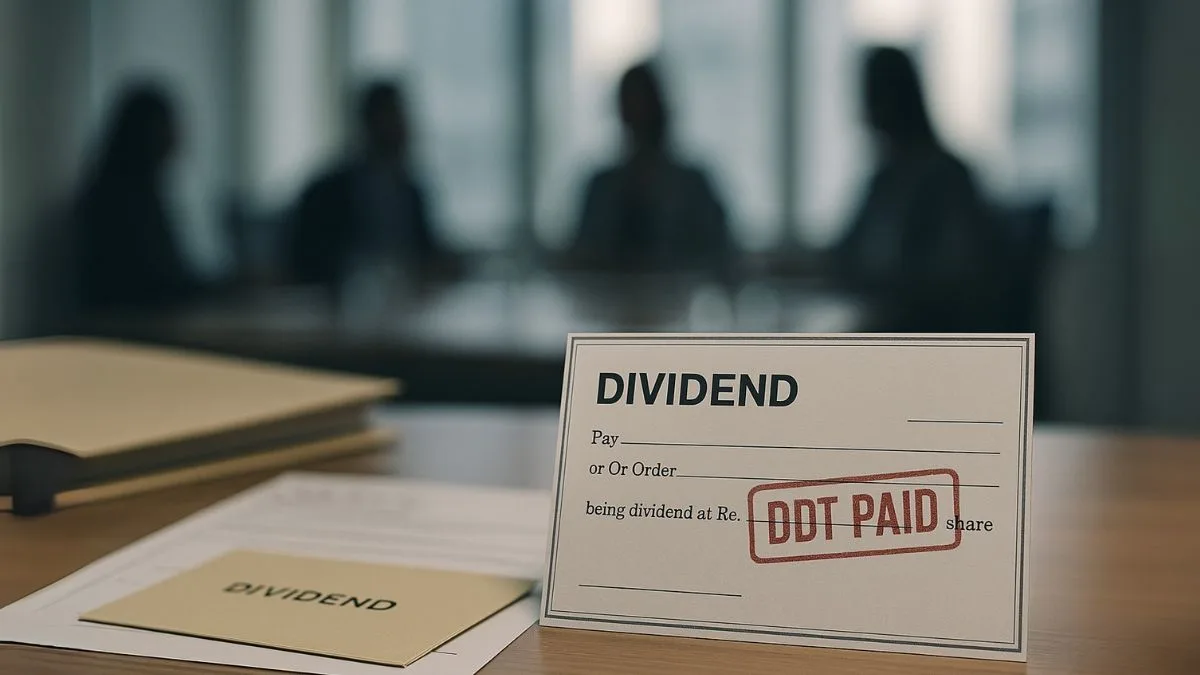
Section 8 of the Income Tax Act plays a key role for organizations that operate not for profit but for the promotion of social welfare, art, science, education, sports, and charitable activities. These companies are registered under Section 8 of the Companies Act, 2013 but their taxation is governed by the Income Tax Act, 1961. The primary benefit of Section 8 is that it allows companies to claim income tax exemption on profits, provided they meet the prescribed compliance requirements.
Interestingly, any interim dividend shall be deemed to be the income of the previous year for taxation purposes, even if declared later. This ensures that companies maintain transparent accounting and comply with reporting obligations.
What is a Section 8 Company Under the Income Tax Act?
A Section 8 company is a special entity recognized under Indian corporate laws that operates for charitable objectives without distributing profits as dividends. The earned surplus is ploughed back into the company’s activities.
Under Section 8 in Taxation On Income (Investigation Commission) Act, 1947, and the current Income Tax Act, such companies enjoy multiple tax benefits. However, it is a myth that they are completely tax-free. The profits of Section 8 companies are taxed at a rate of 30%, unless specific exemptions under Section 11 and 12 are availed by registering as a charitable trust."
Section 8 Company Income Tax Exemption
Section 8 company income tax exemption is available when the entity qualifies as a charitable or religious institution under Sections 11 and 12 of the Act. For this:
- Proper registration with the Income Tax Department is mandatory.
- Income must be used for charitable purposes only.
- Books of accounts should be maintained as per law.
Failure to meet these conditions means the company will be taxed like any other domestic company at 30% plus applicable surcharge & cess.
Section 8 Company Income Tax Rate & Rules
While normal companies pay tax at the corporate rate, Section 8 companies enjoy exemptions for certain incomes. However, when taxed, the profits of Section 8 companies are taxed at a rate of 30%.
Incomes that may still be taxable include:
- Income from business activities unrelated to charitable objects.
- Any interim dividend received, which will be taxed in the year it becomes due.
Also Read: The Interest Penalty That Silently Drains Your Refund
Filing Income Tax Return for Section 8 Companies
Section 8 company income tax return filing is similar to other companies but with specific exemptions to be claimed in the ITR form. Income tax return for Section 8 company must be filed in ITR-7 if claiming exemptions, or ITR-6 if taxable as a regular company.
Due date for filing: Generally, 30th September of the assessment year.
Penalty for delay: Late filing can lead to loss of exemption benefits & penalties under Section 234F."
Compliance for Section 8 Company Under Income Tax Act
Key compliance requirements include:
- Maintaining audited financial statements.
- Filing annual returns with the Registrar of Companies (ROC).
- Filing income tax return before the due date.
- Applying funds strictly towards stated objectives.
Failure to comply can lead to penalties, cancellation of exemption status, and heavy tax liability.
Section 8 Company and GST
If a Section 8 company engages in supply of goods or services, GST compliance becomes mandatory once turnover exceeds the prescribed threshold. While charitable services are exempt under GST, certain activities such as renting out premises may be taxable.
Income Tax Provisions for Section 8 Companies – Special Points
- Any interim dividend shall be deemed to be the income of the previous year even if declared later.
- Section 8 company income tax return form is ITR-7 when claiming exemption.
- Tax exemptions are not automatic – they must be claimed with supporting documents.
Why Section 8 is Popular Among NGOs & Startups with a Cause
Section 8 registration offers legal credibility, exemption from stamp duty, and easier access to foreign contributions under FCRA (subject to compliance). When combined with proper income tax exemptions, it allows organizations to maximize funds for social causes instead of paying higher taxes.
Also Read: The TDS Default That Can Slash Your Tax Deductions
Conclusion
Section 8 of Income Tax Act is designed to support genuine charitable organizations, but the benefits come with strict compliance obligations. Whether it is understanding how any interim dividend shall be deemed to be the income of the previous year or how the profits of Section 8 companies are taxed at a rate of 30%, having expert guidance is key to maximizing benefits & avoiding penalties.
💡 Want to set up or manage your Section 8 company without tax headaches? Visit Callmyca.com – our experts will handle your registration, compliance, and tax filings while you focus on your cause.











